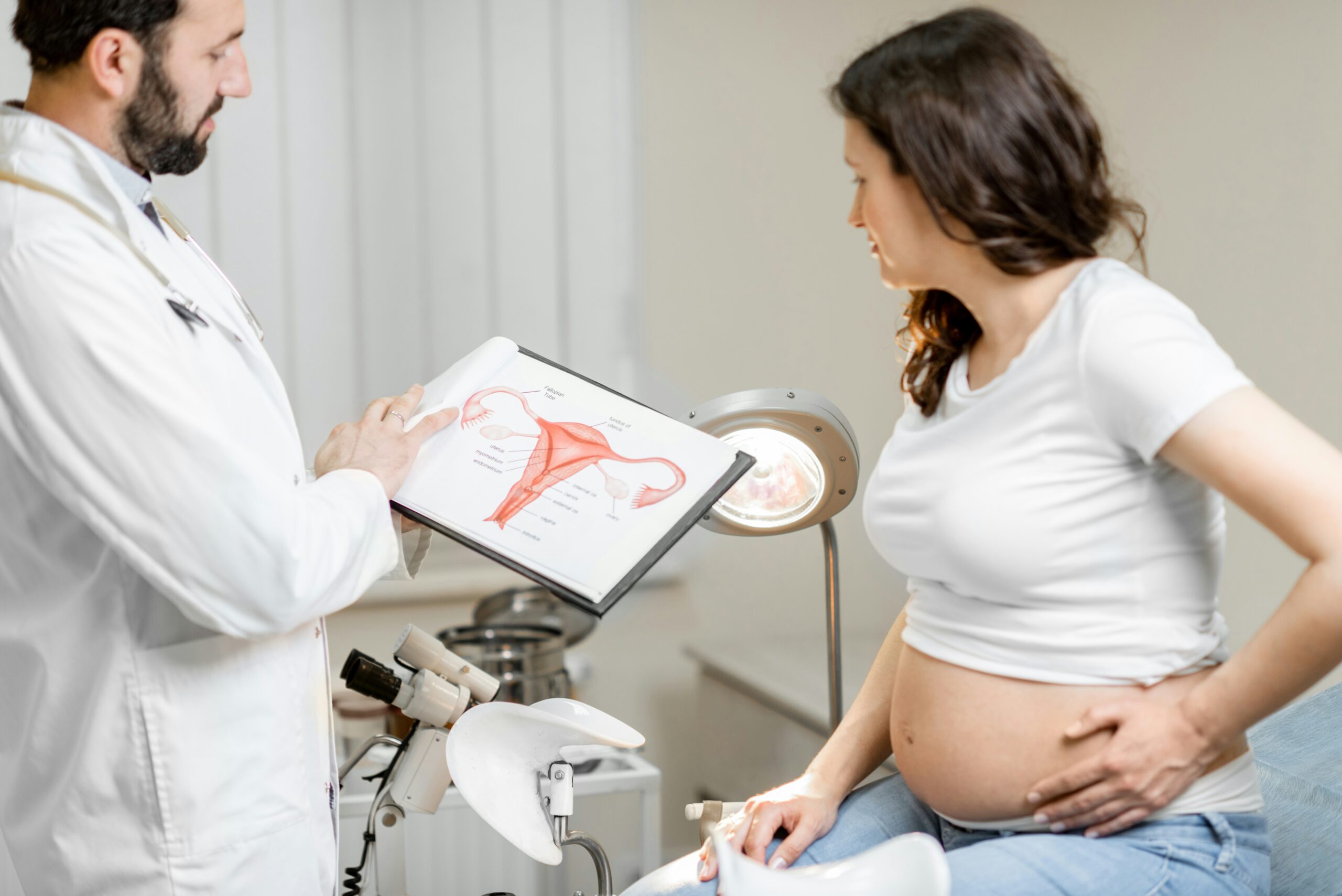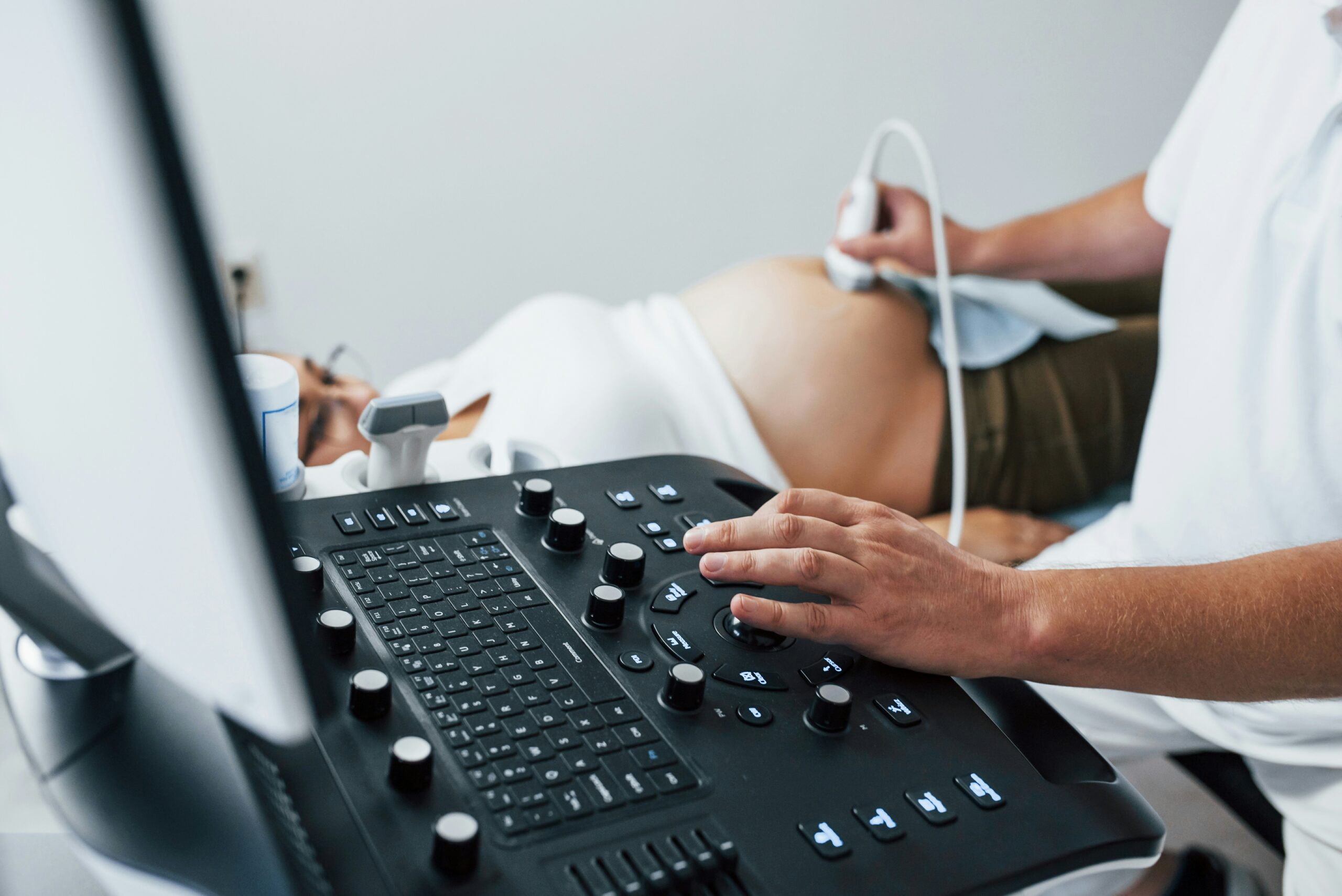When someone experiences a miscarriage, that loss can come with feelings of guilt, along with feelings of sadness and grief. You may feel like you are to blame for your loss; that you did something wrong at some point to cause this situation to happen to you, but the reality is that this is almost never the case. Most of the time, miscarriage is not the result of anything that you did or didn’t do. In fact, about half of early miscarriages happen when the embryo does not develop properly, according to the American College of Obstetricians and Gynecologists (ACOG).
ACOG explains that as many as 90 percent of miscarriages are the result of an abnormal number of chromosomes—something that is completely out of the control of both parents.
What is a miscarriage?
A miscarriage is described as when a person who was pregnant is then no longer pregnant with a viable fetus, under 20 weeks of pregnancy, according to Dr. Rebecca Levy-Grant, an OB/GYN practicing in northern California. In general, miscarriage refers to a person who was pregnant—whether or not there was ever a sign of a heartbeat—is no longer carrying a viable pregnancy. “Approximately 10-15 percent of clinically recognized pregnancies end in miscarriage,” Dr. Levy-Gantt said.
In this article, we will look at the types of miscarriages, a few common causes, misconceptions about what brings on a miscarriage, and factors that might increase a woman’s chances of miscarrying.
- The types of miscarriages.
- Common causes, including chromosome issues and underlying medical conditions.
- A look at some of the common myths surrounding causes of miscarriages.
- Risk factors that might increase a woman’s potential of miscarrying.
Types of miscarriages
Miscarriages come in all forms and at all different times during a person’s first 20 weeks of pregnancy. Here is a look at the most common types of miscarriage and what they involve.
Missed miscarriage
While many people imagine that they will experience bleeding or cramping if they were to miscarry, the reality is that miscarriages can happen rather silently, something known as a missed miscarriage. A missed miscarriage is when there were no signs or symptoms that could have indicated that a miscarriage was about to—or is—happening. This occurs when a person who had a positive pregnancy test has an ultrasound at a time where a live fetus with a heartbeat should have been viewed with the ultrasound, and either no fetus is present, there is a sac seen in the uterus with no fetus or a fetus is seen but it has no heartbeat, Dr. Levy-Gantt said.
Incomplete miscarriage
An incomplete miscarriage is when a pregnant person has started to bleed, the cervix has started to open (or dilate), with pregnancy contents (blood and tissue) coming out, but it hasn’t completely come out yet, according to Dr. Levy-Gantt. In this instance, some contents are still inside the uterus. This type of miscarriage can occur naturally, after taking certain drugs that help expel the blood and tissue from the body or, rarely, even after a D&C, or a procedure called dilation and cuttrage where surgery is performed to remove the pregnancy tissue from the uterus. An incomplete miscarriage is most often diagnosed via ultrasound or blood test.
Complete miscarriage
A complete miscarriage is when there was a viable—or sometimes non-viable—pregnancy, but there has been bleeding and expulsion of all of the pregnancy contents and now nothing is left inside the uterus, Dr. Levy-Gantt said. To determine whether or not a miscarriage is complete, a healthcare provider will often check via ultrasound or order blood tests to make sure that the hCG (human chorionic gonadotropin) levels are low enough to indicate that the pregnancy no longer exists.
Commons causes of a miscarriage
Many times, the cause of a miscarriage is unknown, which can be incredibly frustrating for someone experiencing one. Naturally, you want to know why this traumatic event happened to you—and what you can do in the future to prevent it from happening again. The reality, however, is that so many things need to go right in order for a pregnancy to, not only occur, but to be viable. “For a normal, healthy pregnancy to occur, things must go right during fertilization, implantation and the development of the embryo and fetus, explains Dr. Levy-Gantt. “If any of these things go wrong, this can result in miscarriage,” she adds. Some common issues of miscarriage involve chromosome issues and underlying conditions.
Abnormal chromosomes
During fertilization, when the egg and sperm join, two sets of chromosomes come together, Dr. Levy-Gantt describes. If an egg or sperm has more or fewer chromosomes than normal, the embryo also will have an abnormal number, which can lead to miscarriage.
“We usually assume that the most common reason for miscarriage has to do with the way the genetics of the embryo or fetus are being formed,” Dr. Levy-Gantt says. “When there is some type of a chromosome or genetic abnormality that is not compatible with an embryo or fetus continuing to grow normally, this would cause a miscarriage.”
A miscarriage can also happen if there is a problem with the way the embryo implants into the uterine lining. If it’s unable to remain implanted into the lining of the uterus, a miscarriage can occur, according to Dr. Levy-Gantt.
Incompetent cervix
If the cervix doesn’t remain closed and opens prematurely, a pregnant woman might miscarry. An incompetent cervix is when the cervix (the opening to the uterus) begins to open with no labor, which typically happens in the second trimester, but can happen at any time, Dr. Levy-Gannt says. “It may be noted on an exam, on ultrasound or when a woman starts to feel vaginal pressure and then it is found that the cervix is opening prematurely,” she adds. It is not the same thing as preterm labor, when the cervix opens because there are frequent strong and regular contractions.
Hormonal issues
If there is a problem with the person’s hormones, such as not making enough estrogen or progesterone, it can make it impossible to maintain a growing fetus inside the uterus, according to Dr. Levy-Gantt.
In some cases, certain health conditions, including uncontrolled diabetes, infections, thyroid disease and obesity might lead to a miscarriage, according to the Mayo Clinic. If you have concerns about any of these conditions, you should mention them to your doctor, who can run certain tests to check on your levels of certain hormones such as T that may indicate a condition is present.
Common misconceptions related to miscarriage
There are so many misnomers when it comes to miscarriage, despite it being such a common occurrence. Here, we set the record straight on a few common FAQs.
Can stress cause a miscarriage?
Stress is not directly related to miscarriages. However, if the stress is so high that the person’s mental health is in jeopardy, they might be at a higher risk of miscarriage. There aren’t any percentages or way to measure this, Dr. Levy-Gantt said. If a pregnant person’s stress level is so high, she may not care for herself the way it is necessary, she adds. “She may not notice signs of something being wrong; severe headaches, dizziness and other symptoms that could point to a problem,” she says. “She may not get proper nutrition.” Everyone has some sort of stress and It is rare that a miscarriage would occur because of it, she adds.
Can a UTI cause a miscarriage?
In some cases, a urinary tract infection (UTI) actually can cause a miscarriage. “If a UTI gets so bad, and is neglected until it becomes a kidney infection, that is a serious issue in pregnancy,” Dr. Levy-Gantt says. “A person can become septic, with the bacteria seeping into the bloodstream. This can cause organ failure and may result in a miscarriage.” Later in a pregnancy, a UTI can cause problems because a bladder infection can cause contractions. If enough contractions occur, this can result in premature labor, which can result in early delivery or if the baby is non-viable, a miscarriage, Dr. Levy-Gantt adds.
Thankfully though, urinary infections are evaluated and treated early on in pregnancy. A urinalysis and a urine culture can detect a urinary tract infection throughout pregnancy. If a UTI is detected, it can be safely treated with antibiotics.
Can sex cause a miscarriage?
The act of sex cannot cause a miscarriage. However, consequences of sex can cause problems, according to Dr. Levy-Gantt. “If there is a sexually transmitted infection, this can cause miscarriage or preterm delivery,” she adds. Typically, the baby is well-protected from vaginal infections by a closed cervix and a closed environment with the amniotic sac. “However, if there is a sexually transmitted infection, like gonorrhea or herpes, and it somehow ascends and makes its way into the uterus, or into the amniotic sac, then the contents of the sac (baby and placenta) can become infected.” This could also lead to a septic miscarriage.
Also, if the placenta is lying low in the uterus, also known as placenta previa, and sex causes bleeding, that could be enough to cause a miscarriage or early delivery. In that instance, if a doctor knows this information, they will recommend no sex. “If a pregnancy is normal, normally implanted and growing well, it is hard to ‘cause’ a miscarriage or a loss of the pregnancy,” Dr. Levy-Gantt says.
Factors that might increase risk for miscarriage
There are some factors that can increase a person’s risk for miscarriage, such as older age, hypertension, diabetes, thyroid disease other medical conditions, past history of several miscarriages, anatomical abnormalities of the uterus, obesity and family history of recurrent miscarriage or genetic abnormalities, according to Dr. Levy-Gantt.
The most common risk factor for early pregnancy loss is advanced maternal age. The incidence of early pregnancy loss in women aged 20 to 30 years is only 9-17 percent, while at 45 years it is 75-80 percent, according to a study published in the National Library of Medicine
It is important to remember that, in most cases, there is no true way to prevent a miscarriage. Unfortunately, because many miscarriages occur without a specific known reason, it is difficult to take measures to prevent them, according to Dr. Levy-Gantt.
If you miscarry, remember you are not alone and this is not your fault. The causes of a miscarriage, as seen above, are beyond your control. And there is a whole community available to help you get through this difficult time.





